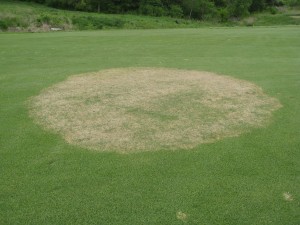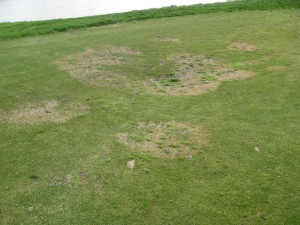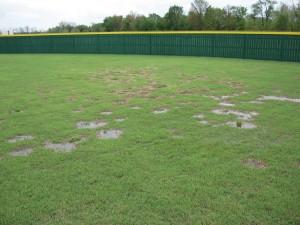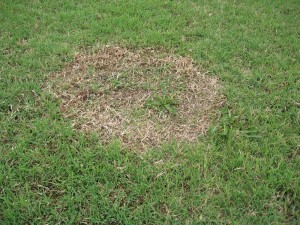(Megan Kennelly, KSU Plant Pathology)
As our warm-season grasses green up, make sure to watch for spring diseases.
Here are some shots (from prior years) of large patch in zoysiagrass:
And, here are some shots of spring dead spot in bermudagrass:
(Photos courtesy Jacob Weber, K-State Extension)
You can read all about management of these diseases here:
http://www2.ca.uky.edu/agc/pubs/ppa/ppa1/ppa1.pdf
If you see these diseases, you may be eager to try something this spring, but the best time for fungicides is in the fall.
At KSU we’ve had good results for large patch with 1-2 fall applications. That is, fall applications have carried all the way through the following spring. Spring applications can reduce the disease but are not as effective as fall applications. There is ongoing research in the turf research community to try to optimize application timing, though, including with our colleague Dr. Lee Miller at U of Missouri.
With spring dead spot, application success has been more spotty here, but again fall has proven more effective. However, sometimes fall applications just don’t work. Cultural practices are critical, and the link above shares some great tips. Just page through to the spring dead spot section.
One very useful thing to do this spring is to take photos and map the diseased areas so that you can target those areas this fall. With large patch, I know several superintendents who only spray the known “hot spots” instead of entire fairways, with good success.




